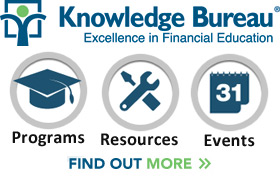
Capital Gains Chaos: Extensions & Unprecedented Delays to Tax Season 2025
Stop! Don’t file a T1 or T3 tax return yet, says a March 11, 2025, news release from the CRA, if you have been impacted by the chaos of the proposed capital gains inclusion rate increase.2020 Tax Season: Will Small Business Owners Get Interest Relief?
 Unincorporated business owners, including gig workers, have until Tuesday June 15 to file their T1 returns without penalty. The government has made it clear that late filing penalties will be applied this year; that happens when you have a balance due as of the filing due date. However, will there be flexibility on interest charges? Yes, but not in every case and business owners must pay attention to this.
Unincorporated business owners, including gig workers, have until Tuesday June 15 to file their T1 returns without penalty. The government has made it clear that late filing penalties will be applied this year; that happens when you have a balance due as of the filing due date. However, will there be flexibility on interest charges? Yes, but not in every case and business owners must pay attention to this.
Tax Season 2021: Unprecedented Statistics
 Nearly 56% of Canadians have yet to file their tax returns, according to CRA’s April 12 processing statistics, so there is a lot of work left to do for the tax filing community. We’re also seeing some new trends: with over 13 million returns processed, average refund are down and so are average balances owing.
Nearly 56% of Canadians have yet to file their tax returns, according to CRA’s April 12 processing statistics, so there is a lot of work left to do for the tax filing community. We’re also seeing some new trends: with over 13 million returns processed, average refund are down and so are average balances owing.
Your Strategic Re-Discovery Journey Begins at Virtual DAC 2021
 It’s official: Canada’s most innovative virtual conference for leading tax, accounting and financial professionals is coming back in an enhanced interactive online format for a second year, for an even more outstanding professional education experience! We are proud to unveil Virtual DAC Acuity 2021, our speakers and sponsors, and an incredible enrolment opportunity until April 15 – you save $1000!
It’s official: Canada’s most innovative virtual conference for leading tax, accounting and financial professionals is coming back in an enhanced interactive online format for a second year, for an even more outstanding professional education experience! We are proud to unveil Virtual DAC Acuity 2021, our speakers and sponsors, and an incredible enrolment opportunity until April 15 – you save $1000!
VIP Grad Status: Something New from Knowledge Bureau
 Have you graduated from a Knowledge Bureau Course, CE Summit, DAC or Program? If so, we have some exciting news. Starting April 15, you will receive VIP tuition fee reductions with every course, program, CE Summit or DAC with your special VIP status as a Knowledge Bureau Grad. The more credentials you have, the more you’ll save!
Have you graduated from a Knowledge Bureau Course, CE Summit, DAC or Program? If so, we have some exciting news. Starting April 15, you will receive VIP tuition fee reductions with every course, program, CE Summit or DAC with your special VIP status as a Knowledge Bureau Grad. The more credentials you have, the more you’ll save!
April 19 Federal Budget Analysis: Will Retirement and Estate Planning Change?
 Is post-retirement planning on the minds of your high net worth clients today? Chances are yes, and now more than ever with a pending federal budget that may introduce a guaranteed income for some, and wealth taxes for others. There are three key reasons to initiate planning conversations early, and Knowledge Bureau’s May 20 CE Summit will provide answers, guidance and materials to help you.
Is post-retirement planning on the minds of your high net worth clients today? Chances are yes, and now more than ever with a pending federal budget that may introduce a guaranteed income for some, and wealth taxes for others. There are three key reasons to initiate planning conversations early, and Knowledge Bureau’s May 20 CE Summit will provide answers, guidance and materials to help you.


